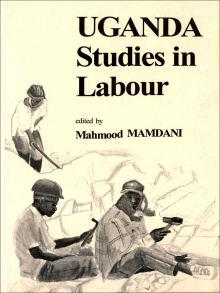Uganda : Studies in Labour
Mots-clés :
Études sur le travail, UgandaSynopsis
Dakar, CODESRIA, 1996, 392 p., ISBN: 2-86978-059-1
The violent imposition of colonial taxes in Uganda at the turn of the nineteenth century changed village life irrevocably by introducing a cash-based economy. Subsistence farming was superseded by the need to generate income. At the same time, the arrival of technology separated villagers into classes and redefined gender roles. In spite of its crucial role in the Uganda economy, labour power has been rarely studied by social scientists. In particular, the real life experience of workers as they interact with both capital and the State has been ignored. Uganda: Studies in Labour makes an enormous contribution to redressing that balance by providing a detailed analysis of rural Ugandan labour today. Ranging from a study of salt winners inside the Katwe National Park, to the degradation and explicit oppression of daily farmers in Kigezi and the life of fisher-people near Lake Victoria, this book contains an in-depth description of the human experience of wage labour. Three village case studies complete the analysis. Written by Ugandan authors at the Centre for Basic Research, Kampala, this book is essential reading for all African economists and social scientists.
Téléchargements






